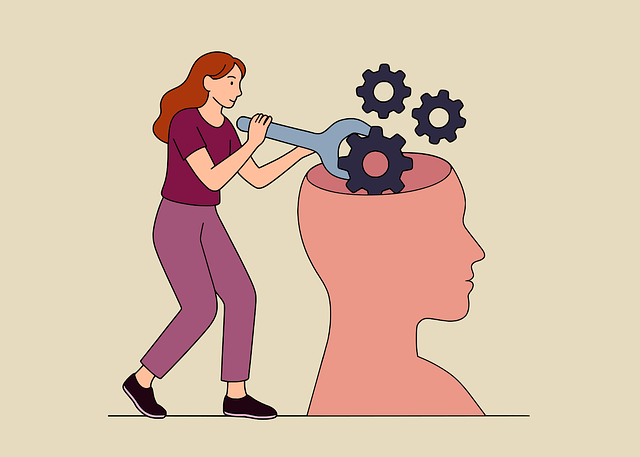Nutrition Planning Services: Personalized Meal Plans for Sober Living Wellness
Nutrition planning services in sober living homes with amenities offer personalized meal plans for o…….
Over 15% US adults have used prescription painkillers not prescribed to them.
In the realm of substance use recovery, a new paradigm is emerging: sober living homes equipped with modern amenities. This innovative approach combines housing support with enhanced lifestyle facilities, aiming to foster holistic healing and sustainable sobriety. The concept has gained significant traction globally, offering an alternative to traditional treatment centers and rehabilitative programs. This comprehensive article delves into the world of sober living homes with amenities, exploring their definition, global impact, economic considerations, technological advancements, regulatory landscape, challenges, case studies, and future prospects. By the end, readers will grasp the transformative potential of this evolving sector.
Sober living homes (SLHs) with amenities refer to residential communities designed specifically for individuals in recovery from substance use disorders. These homes provide a supportive environment, offering not just basic housing but also a range of facilities and services tailored to promote physical, mental, and emotional well-being. Amenities can include fitness centers, meditation spaces, counseling rooms, social gathering areas, healthy meal options, and more.
The concept of sober living homes dates back to the late 20th century when the need for extended support after traditional treatment was recognized. Early models focused primarily on housing and peer support. However, the integration of amenities and modern facilities is a relatively recent development, driven by evolving recovery practices and technological innovations.
Sober living homes with amenities play a crucial role in bridging the gap between intensive treatment and independent living. They provide a transitional environment, offering ongoing support and structure to help individuals maintain sobriety. This approach caters to diverse recovery needs, particularly for those who may require more stability and community involvement beyond traditional 12-step programs.
The concept of sober living homes with amenities has spread across the globe, adapted to suit local cultures and needs. From urban centers in North America and Europe to emerging markets in Asia and South America, these communities are gaining recognition as effective recovery models.
The global market for sober living services is experiencing steady growth, driven by increasing substance use disorders and the demand for accessible, affordable recovery options. This trend is expected to continue as awareness of evidence-based practices increases.
Private equity and real estate investors are showing growing interest in sober living homes with amenities, recognizing their potential for stable, long-term returns. Many investments focus on developing purpose-built communities in strategic locations.
SLHs contribute to local economies by creating jobs, stimulating construction and development, and providing a steady stream of revenue for related businesses, such as healthcare service providers. They also help reduce the economic burden associated with untreated substance use disorders on society.
Technology has revolutionized sober living homes in several ways:
The future holds immense potential for technology integration:
The regulatory landscape for sober living homes varies significantly across jurisdictions:
In the bustling heart of New York City, a newly constructed sober living home offers a sanctuary for recovery. This modern facility provides a mix of private and shared accommodations, along with state-of-the-art amenities. The program focuses on evidence-based practices, incorporating cognitive-behavioral therapy (CBT), mindfulness training, and peer support groups. Residents can access on-site fitness classes, meditation sessions, and healthy cooking workshops. The home also partners with local treatment centers to ensure seamless transition for residents completing intensive rehab programs. This model has shown success in helping individuals reintegrate into urban life while maintaining sobriety.
In the serene mountains of Asheville, a sober living community offers a peaceful haven for those seeking recovery from substance use disorders. This purpose-built facility is nestled among lush forests, providing easy access to outdoor activities like hiking and yoga in nature. The program emphasizes holistic healing, incorporating art therapy, music workshops, and animal-assisted therapy sessions. Residents participate in community gardening and local volunteer initiatives. This case study highlights the benefits of blending modern amenities with natural surroundings for sustained recovery.
Tokyo’s vibrant sober living scene includes homes tailored to meet cultural sensitivities. One such example offers a traditional Japanese-style dwelling with a modern twist, providing a comfortable and familiar environment for local residents. The program incorporates elements of Zen Buddhism and mindfulness practices, along with group therapy sessions led by trained facilitators. This approach respects cultural norms while offering effective recovery support, demonstrating the importance of cultural adaptation in sober living homes.
Sober living homes with amenities represent a significant advancement in the field of substance use recovery, offering comprehensive support within supportive communities. The global impact of this model is evident, as it adapts to diverse cultural contexts while leveraging technological innovations. By addressing economic considerations, overcoming challenges, and embracing future prospects, sober living homes with amenities are poised to play an increasingly vital role in promoting holistic healing and sustainable sobriety worldwide.
Q: What makes sober living homes with amenities different from traditional treatment centers?
A: Sober living homes focus on providing a transitional, supportive living environment post-treatment, offering ongoing support and community involvement. Traditional treatment centers often provide intensive, short-term care.
Q: How do these homes ensure the privacy and confidentiality of residents?
A: Strict data protection laws and policies safeguard resident information. SLHs maintain secure records and use encrypted communication channels to respect individual privacy.
Q: Can technology truly replace human interaction in recovery?
A: Technology enhances but does not replace human connection. Virtual services offer accessibility, but on-site support from trained staff remains crucial for effective recovery.
Q: Are sober living homes affordable for everyone?
A: Affordability varies based on location and amenities. Many SLHs offer sliding scale fees or government-subsidized programs to make them accessible to a wider range of individuals.
Q: How do these communities address the challenge of stigma associated with substance use disorders?
A: Through public education campaigns, community engagement, and open dialogue, sober living homes work to reduce stigma by fostering understanding and support for recovery.

Nutrition planning services in sober living homes with amenities offer personalized meal plans for o…….

Recovery Support Services go beyond initial treatment, offering tailored therapy, peer groups, and e…….

Sober living homes with amenities offer comprehensive recovery support services beyond initial treat…….

Relapse prevention strategies, tailored to individual needs, are crucial for successful long-term re…….

Setting clear boundaries and effective communication are essential for healthy relationships in sobe…….

Cognitive-Behavioral Therapy (CBT) is a highly effective mental health treatment integrated into sob…….

Mental health assessments are crucial for understanding the complex interplay between mental illness…….

Sober living homes with amenities integrated holistic wellness practices, including group counseling…….

Recovery coaching provides personalized support for individuals transitioning from sober living home…….

Mindfulness, an ancient practice focused on present-moment awareness, has gained popularity for its…….